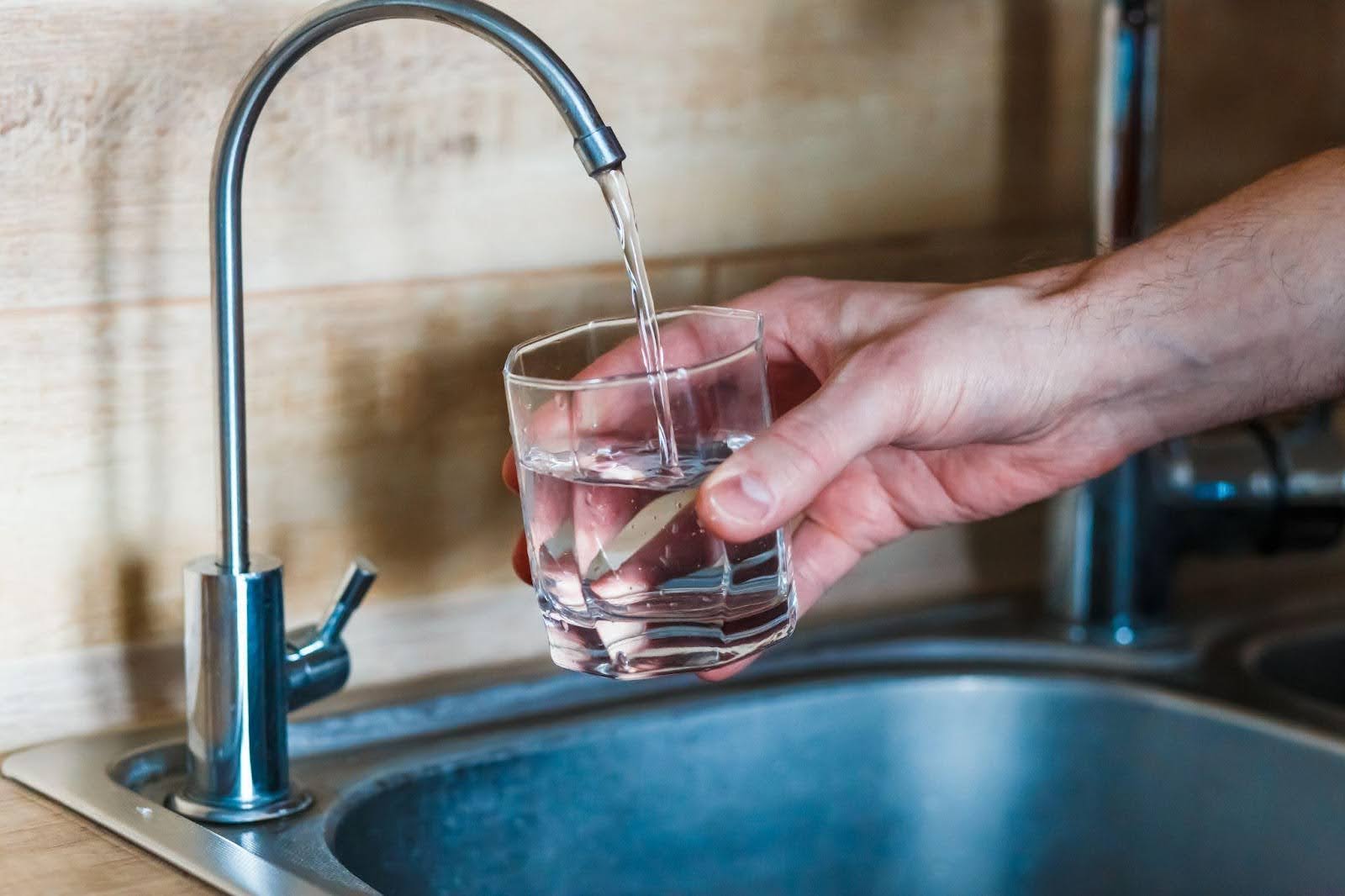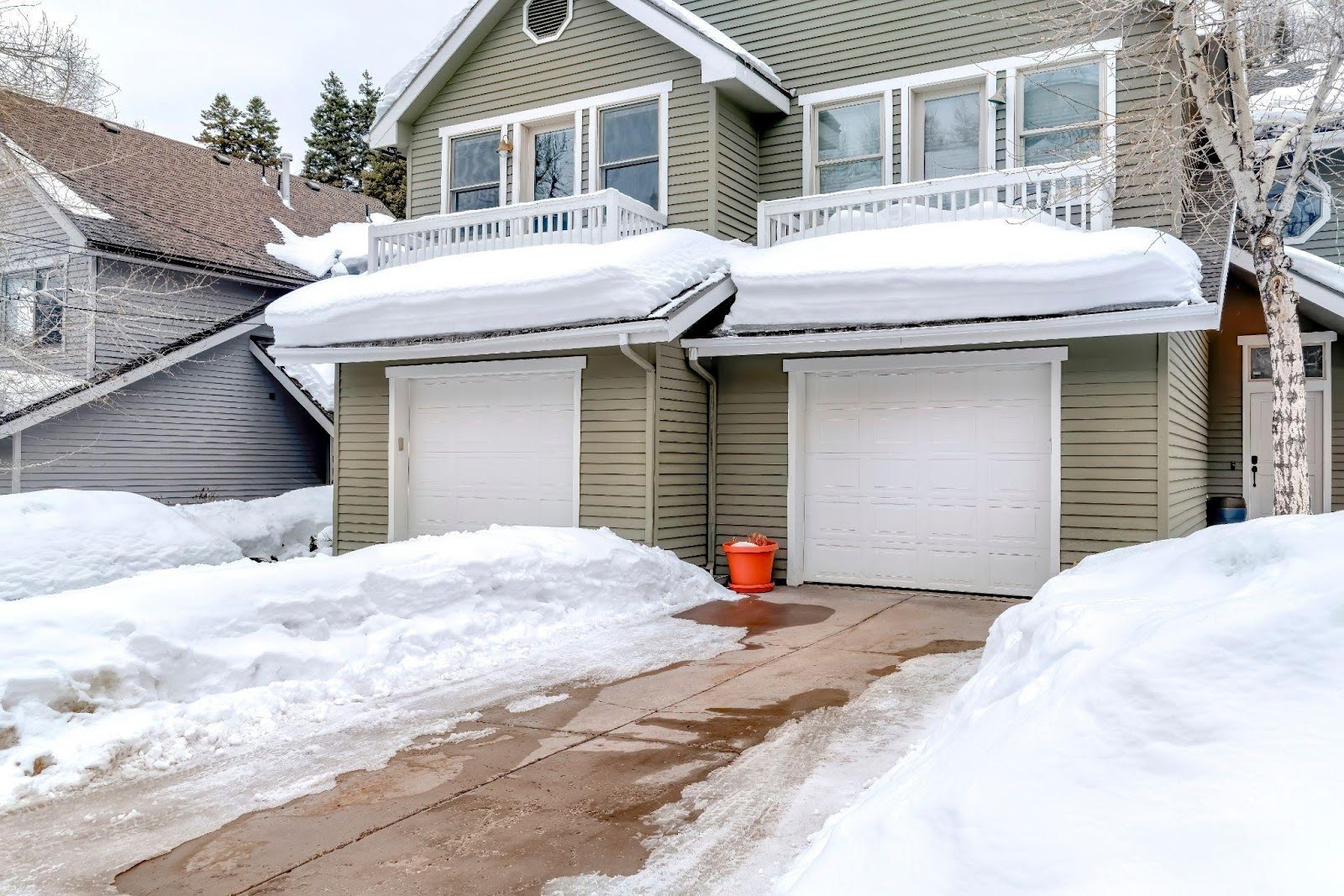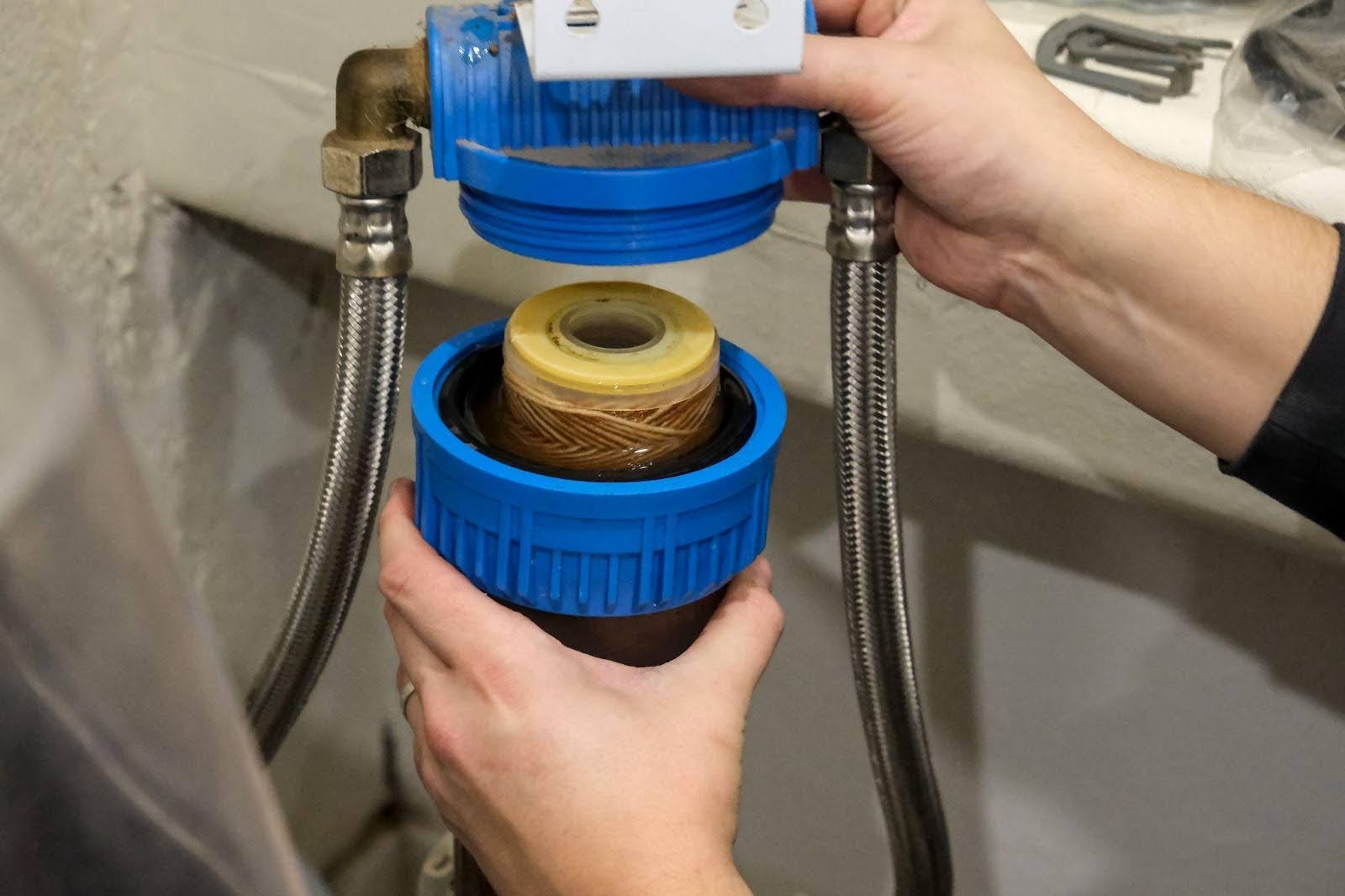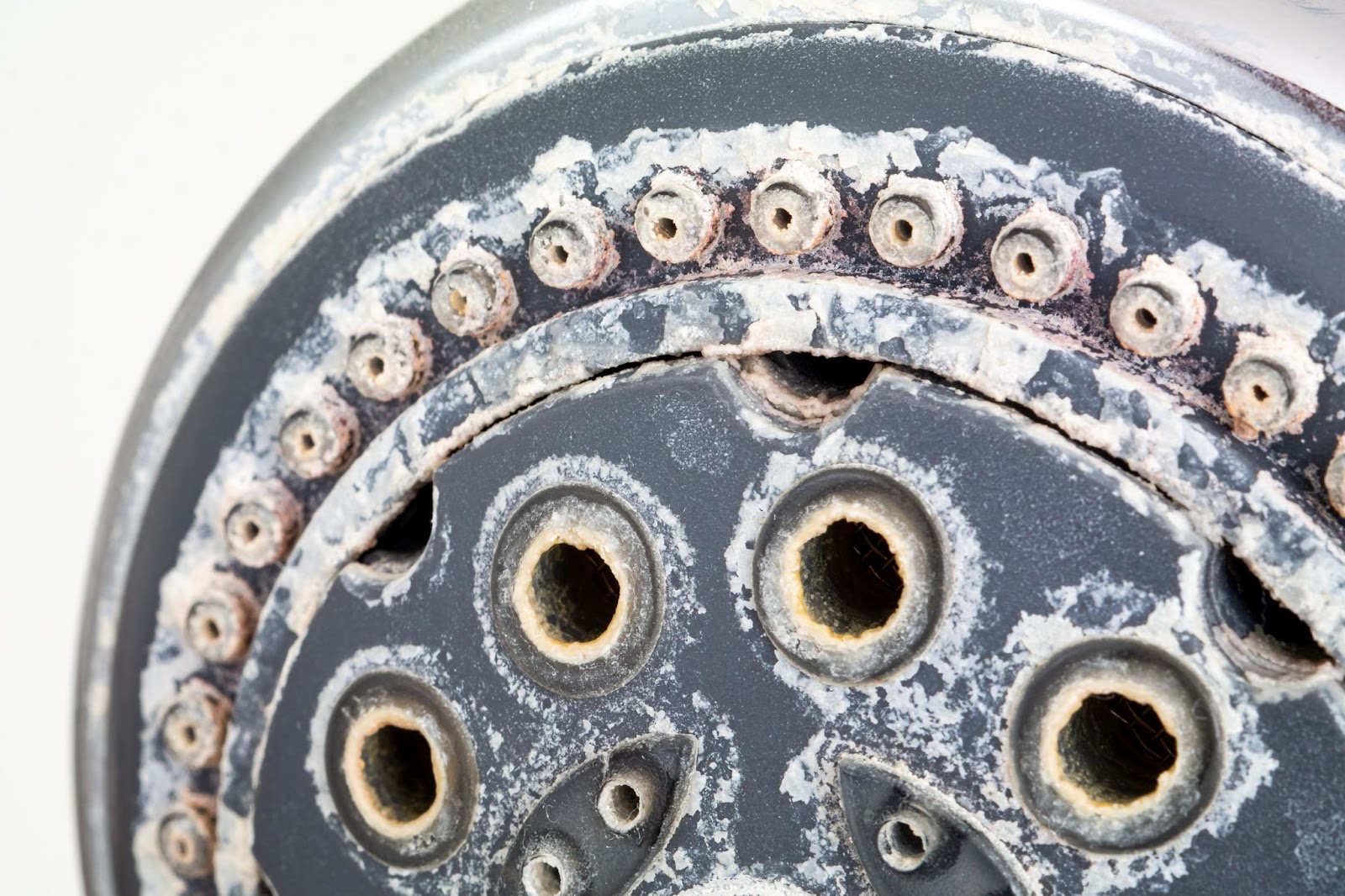Many homeowners deal with hard water every day, leaving their dishes cloudy, their skin dry, and their clothes stained. While it’s one of the most common water issues, it also raises plenty of questions.
Is it safe to drink?
Does it damage your plumbing?
And what can you do to fix it?
The truth is, hard water isn’t dangerous, but it can take a toll on your home over time.
In this blog, we’ll answer your most common hard water questions — explaining what it is, how it affects your health and plumbing, and how to make your water softer, cleaner, and better for everyday use.
Keep reading to learn more.
What is hard water?
Hard water is simply water that contains a high concentration of minerals — mainly calcium and magnesium. These minerals naturally enter your home’s water supply as groundwater passes through layers of limestone and chalk.
While the minerals aren’t harmful, they can cause buildup in pipes, leave residue on surfaces, and make cleaning more difficult over time.
You can usually tell you have hard water if you notice cloudy glassware, chalky spots on faucets, or soap that doesn’t lather well. In Utah, hard water is especially common due to the area’s mineral-rich soil and rock formations.
While hard water is safe to use and drink, mineral deposits — known as limescale — accumulate inside your plumbing system and appliances. This reduces efficiency, shortens equipment lifespan, and even affects your home’s water pressure.
That’s why many homeowners choose hard water solutions, such as water softeners or water filtration systems, to reduce mineral buildup for their families. These systems protect your plumbing and enhance the quality of your water, making it feel, taste, and perform better throughout the home.
Professional hard water removal systems will make your water gentler on your skin, extend the life of your appliances, and eliminate those stubborn white stains around sinks and showers.
Is hard water OK to drink?
The good news is that hard water is generally safe to drink. In fact, the minerals that make water “hard” are essential nutrients that your body needs in small amounts. Many people consume these same minerals through food or supplements, so drinking hard water won’t harm your health.
However, while it’s safe, hard water may affect the taste, smell, and performance of your water. Some homeowners describe the flavor as “metallic” or “earthy,” especially when mineral levels are high. Hard water may also leave behind residue in coffee makers, kettles, and ice machines, creating cloudy buildup or an unpleasant film.
In rare cases, hard water can cause problems for individuals with specific health conditions, such as kidney issues or those following mineral-restricted diets. If that applies to you, installing a water filtration system will reduce the mineral content and improve the overall water quality.
Even though drinking hard water isn’t dangerous, the bigger concern is what it does to your plumbing and appliances. Over time, mineral buildup, also known as scale, collects inside pipes, faucets, and water heaters. This buildup reduces efficiency, clogs fixtures, and eventually requires a water line fix or major plumbing repair.
That’s why many homeowners invest in hard water solutions, such as softeners or water softening systems. These improvements enhance taste and comfort, while also protecting your plumbing system from mineral damage and saving you money in the long run.

What are the signs of hard water?
Hard water often shows itself long before it causes serious plumbing problems. Even if your water looks clear, the minerals inside will leave behind noticeable clues around your home. Here are the most common signs that you may need hard water solutions or professional hard water removal.
1. White spots and residue
Those cloudy spots on your glasses, faucets, and shower doors are mineral deposits left behind when hard water evaporates. Over time, these calcium and magnesium stains become stubborn and difficult to clean without special products or soft water.
2. Soap scum buildup
Hard water interferes with soap and detergent, making it harder to rinse away. This creates a film on sinks, bathtubs, and tile that never seems to disappear. In your laundry, this same residue can cause clothes to feel stiff and appear faded.
3. Dry skin and dull hair
If your skin feels tight after showering or your hair seems flat and dry, hard water could be to blame. The minerals strip away natural oils, preventing soap from rinsing off completely. Many homeowners notice an immediate difference after installing a water filtration system or softener.
4. Scale buildup in plumbing and appliances
Over time, mineral deposits form limescale inside pipes, faucets, and appliances like dishwashers and water heaters. This buildup restricts water flow, reduces heating efficiency, and eventually leads to leaks or costly repairs.
5. Reduced water pressure
When buildup gets severe, it narrows the inside of your pipes, lowering water pressure throughout your home. If your faucets and showerheads have weak flow despite a normal water supply, scaling may be the cause.
These signs indicate that minerals are collecting in your plumbing system and may already be affecting performance. Fortunately, professional hard water removal services and water-softening systems can restore your home’s water quality, protect your plumbing, and make everyday tasks easier.
What’s the difference between hard and soft water?
Minerals are the main difference between hard and soft water. Hard water contains higher levels of calcium and magnesium, while soft water has most of those minerals removed through a treatment process — usually a water softener or hard water removal system.
Hard water is completely natural, but you’ll often notice spots on dishes, stiff laundry, and scale buildup on faucets or showerheads. On the other hand, soft water feels smoother, helps soap lather more effectively, and keeps your plumbing system cleaner.
For many households, the choice between hard and soft water is a matter of comfort and protection. Hard water will slowly wear down pipes, forcing homeowners to deal with leaks or even a broken pipe that needs professional repair. Soft water helps prevent these issues by reducing scale buildup and maintaining the health of your plumbing.
Families looking for healthier, more efficient water often turn to hard water solutions. These systems remove excess minerals and create a balance that’s better for your skin, your appliances, and your entire home.
With the right setup, you’ll enjoy cleaner water, better performance, and peace of mind knowing your plumbing is protected for the long haul.
How do you fix hard water problems?
Fixing hard water starts with understanding how severe the problem is. Some homes only have mild mineral buildup, while others experience major scaling that affects plumbing, appliances, and water quality. Reliable hard water solutions will significantly affect how your water looks, feels, and performs.
1. Water softeners
A traditional water softener is one of the most effective systems for removing hard water. It works through ion exchange, replacing calcium and magnesium ions with sodium or potassium.
The result is softer water that’s easier on your skin, plumbing, and appliances. Softened water prevents limescale buildup, improves soap efficiency, and extends the lifespan of dishwashers and water heaters.
2. Water conditioners
Water conditioners are an alternative option that don’t remove minerals but instead prevent them from sticking to surfaces. This helps reduce scale buildup in pipes and appliances without fully softening the water.
Conditioners are a good choice for households that want easier maintenance and fewer mineral deposits but prefer to keep natural minerals in their water.

3. Filtration systems
Comprehensive water filtration for families will improve the taste and safety of their home’s water supply. Filters remove impurities, chlorine, sediment, and excess minerals that affect water’s smell and taste.
Combining a filtration system with a softener or conditioner gives your home the best of both worlds — clean, clear, and gentle water for every tap.
4. Professional installation and maintenance
For long-term results, it’s important to have licensed professionals install and maintain your hard water solutions. A plumber will test your water hardness levels, recommend the best system for your home, and ensure proper sizing and setup. Regular servicing also keeps the system running efficiently, preventing clogs, leaks, or uneven softening.
If you’ve noticed buildup, poor water pressure, or dry skin, it’s time to consider professional hard water removal. The right treatment system will protect your plumbing, improve your home’s water quality, and make daily tasks much more enjoyable.
Enjoy cleaner, softer water with help from Salisbury Plumbing
While hard water is safe to drink, it can cause a range of issues for homeowners, including mineral buildup, low water pressure, dull laundry, and even plumbing damage over time. The good news is that you don’t have to live with it. You’ll protect your home, appliances, and family’s comfort with the right hard water solutions.
At Salisbury Plumbing, we specialize in hard water removal and filtration for Utah families. Our experts will test your water, recommend the right treatment system, and carefully install it. From whole-home softeners to advanced filtration setups, we’ll help you enjoy clean, efficient water that’s easier on your plumbing and your skin.
Don’t let hard water damage your home. Contact Salisbury Plumbing today to schedule a consultation and discover the best water treatment options for your household.







